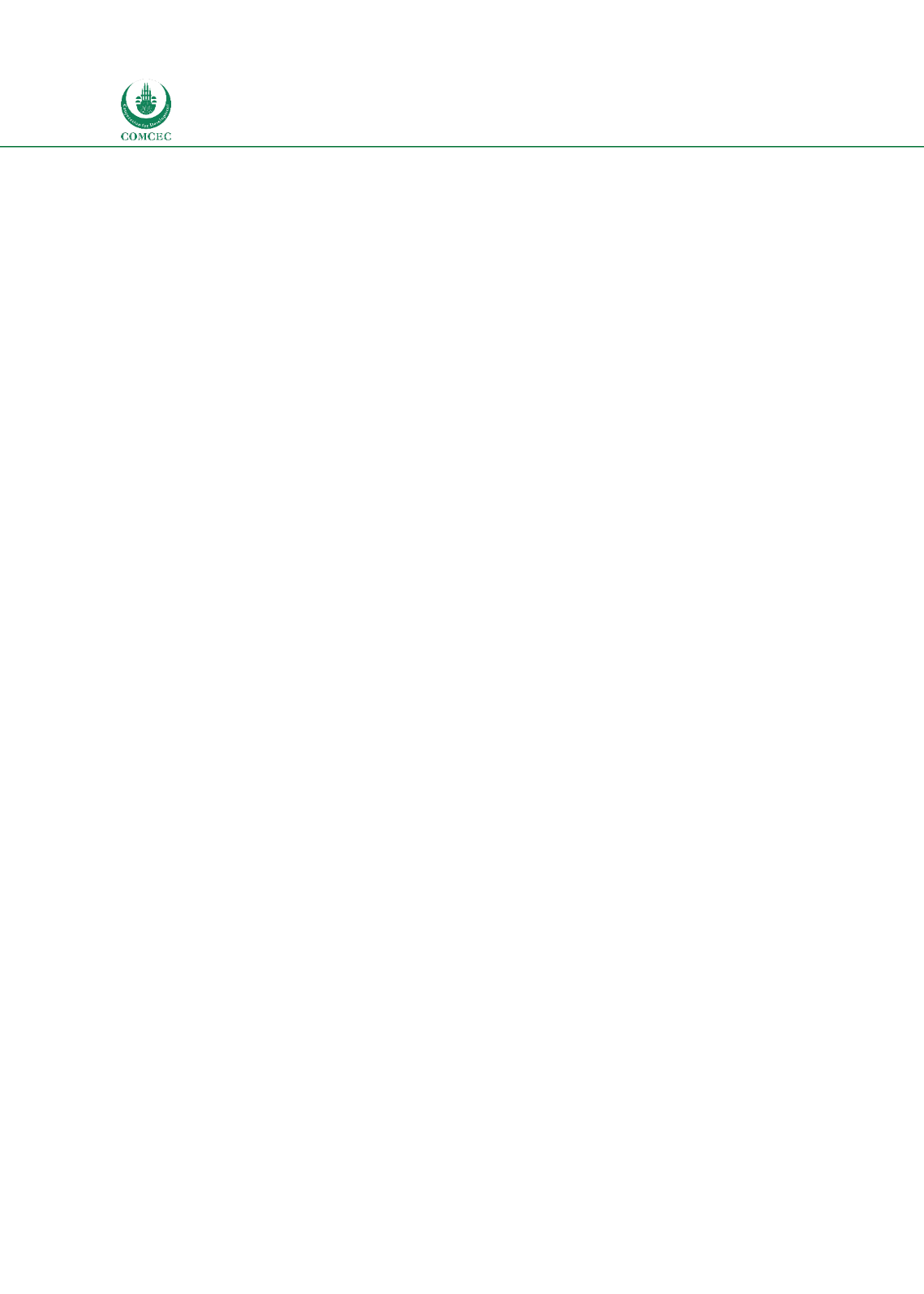

National and Global Islamic Financial Architecture:
Problems and Possible Solutions for the OIC Member Countries
208
6.4.
Conclusions
The results from the country case studies and international infrastructure institutions reveal
that the financial architecture for Islamic finance is diverse. While in some areas the
international standard setting institutions have provided the basic framework for certain
infrastructure institutions, in a few others there are gaps. For example, while IFSB and AAOIFI
provide guidelines and standards for regulations and accounting standards, there are no
international organizations that provide templates for Islamic financial laws that countries can
adopt. The existence of different international guidelines and standards for Islamic finance,
however, does not mean that these are automatically adopted by different countries. Different
factors determine whether a country will adopt the guidelines and standards developed by
international standard setting bodies.
As infrastructure institutions by their nature need to be undertaken by governmental bodies, a
key factor that determines them is the political will which is reflected in public policies and
legal and regulatory systems. For example, Sudan has adopted an Islamic legal system and the
whole financial sector is Islamic. Not only are legal and regulatory frameworks appropriate for
Islamic finance, the country has also adopted the international accounting and regulatory
standards of both AAOIFI and IFSB for the Islamic financial sector respectively. Most other
countries where Islamic finance operates have either the common law or civil law regimes and
have the conventional financial system dominating the financial sector. The adoption of
financial architectural institutions in general and international Islamic standards in particular
would require public policy initiatives that change and adjust the existing infrastructure
institutions to accommodate Islamic finance. While a few countries have adopted AAOIFI and
IFSB standards, most have not. Some countries encourage the use of AAOIFI standards on a
voluntary basis.
















